Teen Co-Occurring Disorders
Mental Disorders And Drug Abuse In Teens
Drug abuse and mental disorders like depression and anxiety are commonly found together in teens. In fact, dual diagnosis occurs in more than half of all teens who abuse drugs.
According to the National Institute on Drug Abuse, 6 in 10 substance abusers also have a mental disorder.
The human brain is still developing well into a person’s early 20s. Most mental illnesses develop during this period of growth. This period is also when the brain is most vulnerable to damage from drug abuse.
Many addiction specialists believe teens with mood disorders turn to drugs and alcohol to self-medicate. Psychologists conduct research every day to better understand the links between addiction and mood disorders. Specialized treatment centers have the expertise and resources needed to help teens with co-occurring disorders recover.
Misdiagnosis

A misdiagnosis occurs when a patient does not receive the correct diagnosis for their substance use or mental health disorder. This inaccurate diagnosis can lead to inaccurate treatment.
View All VideosTeen Depression And Addiction
For both teens and adults, the co-occurring disorders of drug addiction and depression are a common and dangerous combination. Depression can arise from a blend of biological, genetic, psychological, and environmental factors. Addiction has similar roots, so it’s unsurprising that the two frequently co-occur.
Depression is characterized by feelings of sadness, hopelessness, and self-doubt that greatly interfere with daily life.
Adolescence is a time of change for teens. As their bodies, home lives, and even brain chemistries change, teens may have a hard time coping. Parental guidance is crucial during this period. Without it, a common case of the adolescent blues can develop into teen depression and possible drug abuse. Many teens turn to alcohol or drugs to self-medicate their depression.
Teens suffering from depression often appear sad or anxious, but that’s not always the case. Depressed teens might also lash out angrily at loved ones over seemingly insignificant things. Parents might feel unsure about whether their child is experiencing typical teenage turbulence or suffering from depression. If a teen’s behavior drastically changes during adolescence, especially if it leads to self-harm, violence, or drug abuse, they might be struggling with depression.
Common symptoms of teen depression include:
- Continuous anxious or “empty” mood
- Irritability
- Feelings of helplessness
- Fatigue
- Difficulty sleeping
- Appetite and/or weight changes
- Difficulty concentrating
- Body aches and pains
Depressed episodes can be powerful relapse triggers for recovering teens. There’s no quick fix for addiction, and treating depression can take a long time. It’s crucial to treat both co-occurring disorders together so that untreated depression doesn’t cause a relapse into addiction or vice versa.
Need Support Right Away To Help Your Teen?
Newport's industry-leading teen mental health and substance abuse treatment is proven to create long-term recovery.
Get your free toolkit with information on warning signs and next steps to access care.
- Tailored treatment plans
- Medical and clinical experts
- Proven success rates
Paid Advertising. We may receive advertising fees if you follow links to the Newport Healthcare site.
Teen Anxiety And Addiction
Feeling anxious or scared is part of growing up. When nervousness and fear start interfering with a teen’s daily life, however, an anxiety disorder might be forming.
One in eight children are affected by an anxiety disorder, but only 20% of affected children receive treatment.
Common anxiety symptoms include:
- Difficulty concentrating
- Fatigue
- Irritability
- Difficulty relaxing
- Sweating
- Nausea
- Startling easily
- Trembling
Anxiety disorders rarely develop before adolescence. On the surface, anxiety disorders can look like normal teenage growing pains. Teens suffering from anxiety disorders, however, can feel incapable of functioning due to worry. They may avoid school, work, and activities they used to enjoy, like socializing with friends.
Try Online Therapy

Get professional help from an addiction and mental health counselor from BetterHelp by phone, video, or live-chat.
Take the Quiz. Get Matched. Begin Therapy.
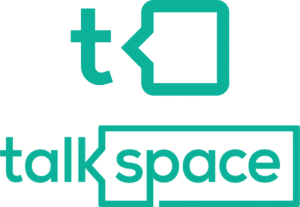
Online therapy can help you with long term addiction support. Connect with a therapist from Talkspace anytime, anywhere.
Get matched with a therapist now.
Paid Advertising. We may receive advertising fees if you follow links to promoted online therapy websites.
Many teens will turn to Central Nervous System (CNS) Depressants like alcohol to calm the hyperactive brain activity that underlies anxiety disorders. But this relief is only temporary. Teens may eventually become dependent on the substance to feel normal, which can quickly lead to addiction.
According to the National Institute of Mental Health, teens with anxiety disorders are more likely to develop bipolar disorder than their peers. Treating co-occurring anxiety disorders and drug abuse early on can prevent more severe disorders and addictions from developing later.
Featured Centers Offering Dual Diagnosis Treatment for Teens


Teen Bipolar Disorder And Addiction
Bipolar disorder is characterized by severe swings between extremely happy and productive moods on one hand and depressed and inactive moods on the other.
Most teens have emotional ups and downs. Bipolar mood swings, however, are more intense than average adolescent angst. During bipolar episodes, teens may seem like completely different people. Teens having a bipolar episode can stay in a given mood for weeks at a time; their daily routines may become completely disrupted as a result.
| The Two Extremes Of Bipolar Disorder | |
|---|---|
| Manic Periods | Depressed Periods |
|
|
Many therapists insist that every teenager with a bipolar diagnosis be screened for alcohol or drug problems. Teens suffering from bipolar disorder experience such dramatic mood swings that they will often do anything to make them stop. This commonly means turning to drugs or alcohol.
It’s important for parents to be emotionally supportive of teens suffering from bipolar disorder. Helping teens find healthy emotional outlets and alternatives to drug use is also crucial for long-term recovery.
Looking for a place to start?
Join the thousands of people that have called a treatment provider for rehab information.
Free and confidential
Available 24/7
Access to professional treatment
Teen Attention Deficit Hyperactivity Disorder (ADHD) And Addiction
Those suffering from attention deficit hyperactivity disorder (ADHD) struggle with impulsiveness, hyperactivity, and inattention.
Teens with ADHD are far more likely to abuse drugs and alcohol than their peers. One national study shows that 35% of teens with ADHD have used at least one substance. Only 20% of teens without ADHD reported the same.
Researchers have many theories about how ADHD and drug abuse are connected. Some believe low levels of the happiness-inducing neurotransmitter dopamine can cause ADHD and drug abuse simultaneously.
Others believe the personal conduct problems ADHD causes in young teens are to blame. Teens suffering from ADHD are often punished in school and at home for hyperactive behavior they can’t control. This leads to mental stress on young teens that can cause severe feelings of anxiety and even depression, leading to self-medication with drugs or alcohol.
Common symptoms of ADHD include:
- Difficulty paying attention
- Restlessness
- Aggression
- Difficulty sitting still
- Frequently interrupting others
- Frequent procrastination
Teens with untreated ADHD are three times more likely to suffer from drug or alcohol addiction as adults. Treating ADHD and co-occurring drug abuse while teens are young is crucial to preventing full-fledged addictions from forming.
There have also been studies that suggest that teens who have been prescribed ADHD medications for many years are more likely to abuse substances later in life. Many therapists see young adults who have been on ADHD medications since early childhood abusing substances at higher rates in early adulthood.
Treating Teen Addiction And Dual Diagnosis
Some addiction rehabs may not treat underlying mood disorders. Additionally, mental health counseling might not treat co-occurring drug abuse. To keep teens with co-occurring disorders from falling between the cracks, it’s important to treat both disorders at once.
Teens diagnosed with co-occurring disorders typically aren’t successful in traditional addiction treatment programs. Treatment approaches like the 12-step recovery model may be too confrontational for teens with a dual diagnosis. The stress these teens suffer in such programs can be counterproductive to addiction recovery.
Treatment programs that build positive social connections are often effective. Recovery groups designed specifically for teens play an important role in providing emotional support. Teaching teens new skills to cope with negative feelings helps treat mental illness and drug addiction. Learn more about teen treatment programs and techniques.
Find Help Today
Identifying a problem is only the first step toward your teen’s long-term health. The next recommended step is to find a drug treatment and recovery program. Drug abuse and addiction is difficult to treat in a vacuum, let alone alongside another mental health disorder. Inpatient and outpatient treatment centers offer programs designed to help teens overcome both obstacles.
Click here for more information about online therapy options today.
Try Online Therapy

Get professional help from an addiction and mental health counselor from BetterHelp by phone, video, or live-chat.
Take the Quiz. Get Matched. Begin Therapy.

Online therapy can help you with long term addiction support. Connect with a therapist from Talkspace anytime, anywhere.
Get matched with a therapist now.

Begin making positive changes with Online-Therapy.com. Quality online therapy, from the comfort of home.
Answer a few questions to get started.
Paid Advertising. We may receive advertising fees if you follow links to promoted online therapy websites.
Published:
Author
Jeffrey Juergens

-
Jeffrey Juergens earned his Bachelor’s and Juris Doctor from the University of Florida. Jeffrey’s desire to help others led him to focus on economic and social development and policy making. After graduation, he decided to pursue his passion of writing and editing. Jeffrey’s mission is to educate and inform the public on addiction issues and help those in need of treatment find the best option for them.
- More from Jeffrey Juergens
Reviewed by Certified Addiction Professional:
David Hampton

A survivor of addiction himself, David Hampton is a Certified Professional Recovery Coach (CPRC) and a member of the National Association of Alcohol and Drug Abuse Counselors (NAADAC).
- More from David Hampton


Recovery Starts Today
Call Now For Addiction Support

Newport Academy – Teen Rehab Center
Port Townsend , WA

Newport Institute for Young Adults
Sunol , CA

Moonlight Mountain Recovery
Pocatello , ID

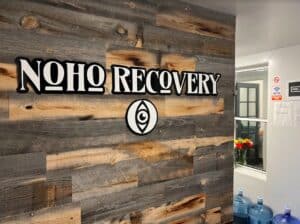

Hollywood Hills Recovery
Los Angelos , CA

Newport Institute for Young Adults
Santa Ana , CA

OC Revive – Drug and Alcohol Rehab
Lake Forest , CA

OC Revive – Teen Rehab Center
Lake Forest , CA

Newport Academy – Teen Treatment Center
Saint Cloud , MN

Newport Institute for Young Adults
Monticello , MN

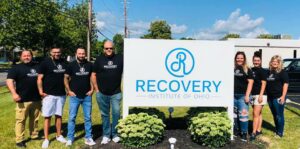
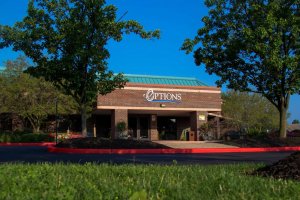
Options Behavioral Health Hospital
Indianapolis , IN
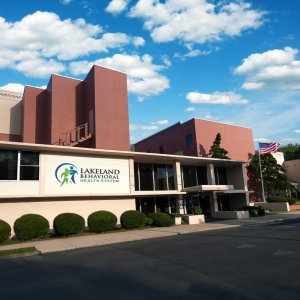
Lakeland Behavioral Health System
Springfield , MO

Newport Academy – Teen Rehab Center
Bethlehem , CT